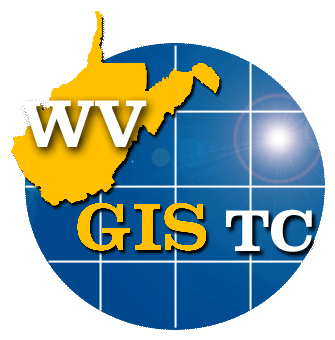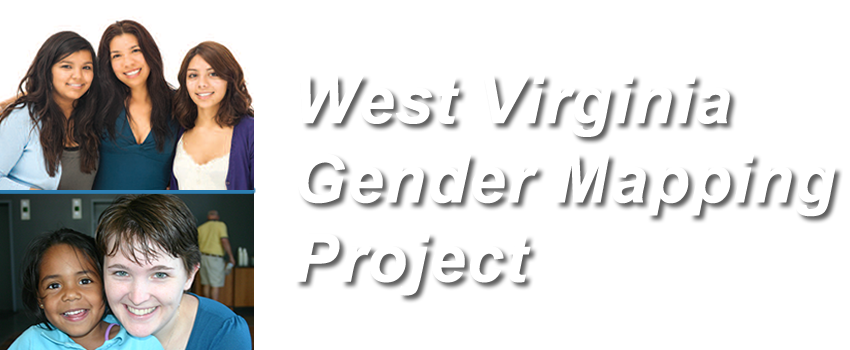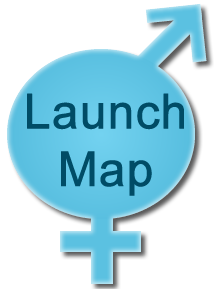About Us: Project, People and Data
The West Virginia Gender Mapping Project is designed to inform policy-makers, non-profit organizations, researchers, and citizens about gender and women’s issues in West Virginia. This website was developed using data from The Status of Women and Girls in West Virginia (2013) report in collaboration with the Institute for Women’s Policy Research (IWPR) and the West Virginia Women’s Commission. The information in this project provides a better understanding of gender issues in the state which is useful in promoting sustainable and healthy people, households, and communities.
The interactive map and tables on this website show how social and economic indicators such as employment, poverty, and marital status are geographically represented in five regions across the state. The data reflect how gender differences are spatially embedded in unequal power relations and access to resources.
This project includes a variety of data, analyses, and maps that were gathered using mixed methods to address issues relating to gender and the status of women in WV. Geographic Information System (GIS) provides an interactive format to examine the distribution of men’s and women’s socio-economic status in this state.
Many people and organizations contributed to the development of this project. Technical support was provided by the WV GIS Technical Center housed in the Department of Geology and Geography at West Virginia University. The data in the tables was made available by the IWPR and Cynthia Hess who also gave feedback at various points during this project. Inspiration for this project is partly due to ongoing collaboration with the WV Women’s Commission that also helped to fund development of the website. Finally, the WVU Eberly College of Arts and Sciences provided financial support through the faculty development fund.
The following researchers gave generously of their time, expertise, and hard work to make this project possible:
 |
Dr. Ann M. Oberhauser received her MA and PhD from the Graduate School of Geography at Clark University. Her research interests include gender and economic restructuring, rural development, women’s economic networks, and qualitative methodology. Much of her research takes place in Appalachia and sub-Saharan Africa where she is conducting a comparative analysis of collective economic strategies among rural women. |
 |
|
 |
Xiannian Chen works as an applications developer and GIS programmer at the West Virginia GIS Technical Center. His work has focused upon a variety of GIS and Geospatial technologies, including Interactive Map development. Additionally, he is pursuing his PhD Geography at West Virginia University. His primary research interest lies in using social media in disaster relief contexts. |
 |
Ally Sobey, a second year MA student in the West Virginia University Geography Program, has interests in environmental justice, feminist geographies, and social movements. Her thesis examines the storage and production of Methyl Isocyanate in Institute, WV and the techniques local oppositional movements use to protect their environment. |
Data
Data is largely gathered from the US Census Bureau and specifically the American Community Survey. The Institute for Women’s Policy Research and the West Virginia Women’s Commission were instrumental in compiling and publishing the data in the attached report published in 2013. In addition, the West Virginia GIS Technical Center generously provided technical support and GIS expertise in preparing this website.
We intend for this information to be widely distributed among government agencies, political organizations, state legislatures and institutions of higher education.
The outcomes of this project will hopefully advance the status of women and girls in the state which will, in turn, lead to expanded resources and improved quality of life for everyone.
Supporting Organizations
 |
West Virginia GIS Technical Center |  |
West Virginia University Department of Geology and Geography |
 |
Institute for Women's Policy Research | West Virginia Women's Commission |
Please contact Ann M. Oberhauser at West Virginia University with any questions or comments relating to the site.

